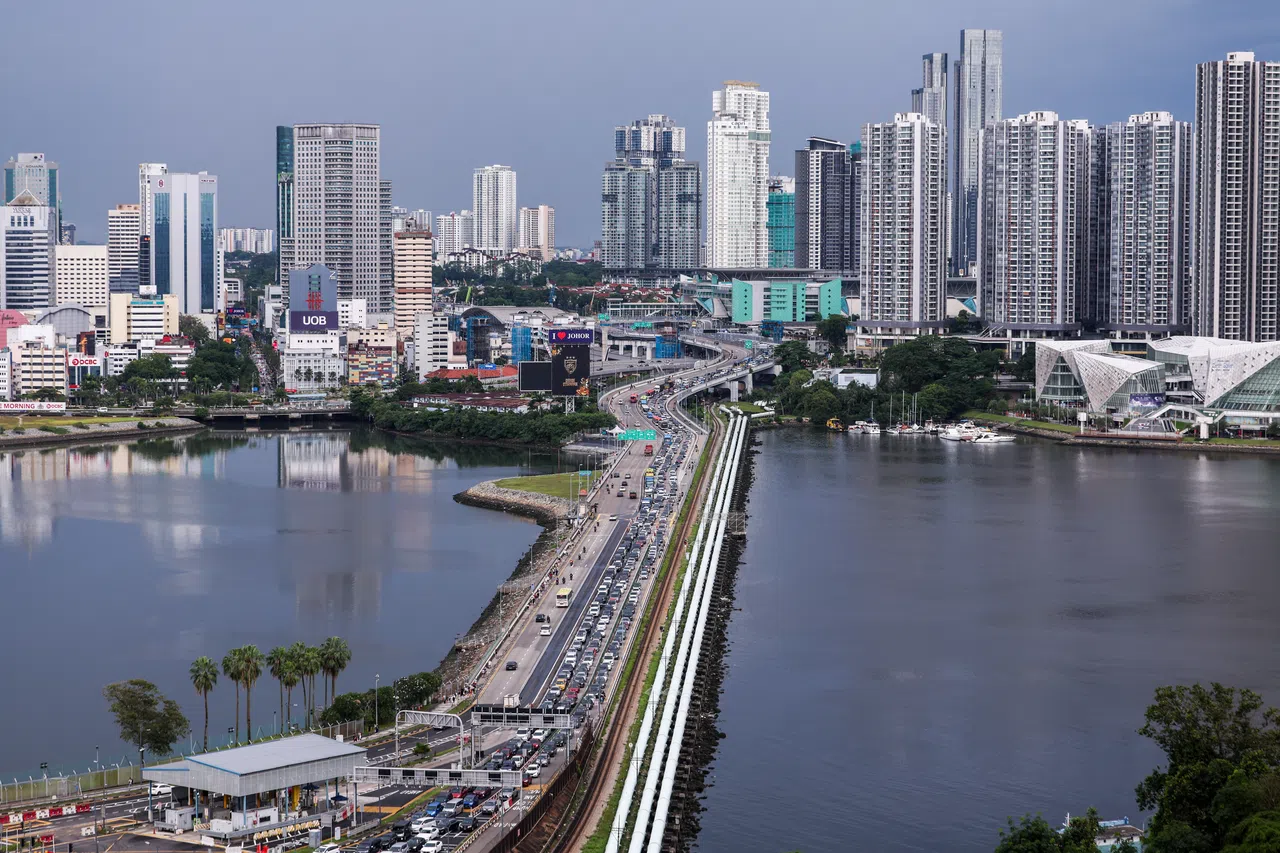SINGAPORE and Malaysia have established a new Johor-Singapore Special Economic Zone (JS-SEZ) that will drive investments in key sectors.
The 11 key sectors are: manufacturing, logistics, food security, tourism, energy, the digital economy, green economy, financial services, business services, education and health.
Both countries have aimed for 100 projects in the next 10 years, and to create 20,000 skilled jobs.
Certain sectors and stocks in Singapore will benefit, said analysts.
The JS-SEZ may draw the supply chains that are shifting elsewhere as a result of US-China trade tensions, Maybank pointed out in a report on Tuesday (Jan 7).
Thilan Wickramasinghe, Maybank Securities Singapore head of research, wrote: “Conceptually it has the ability to leverage Singapore’s global finance and logistics centre capabilities with Johor’s access to competitive land, labour and energy to deliver a differentiated proposition – especially for supply chains looking for alternatives to North Asia amidst the US-China trade war.”
A NEWSLETTER FOR YOU
Friday, 8.30 am
Asean Business
Business insights centering on South-east Asia’s fast-growing economies.
These sectors in Singapore – banks, gaming, industrials, tech and telecommunications – will benefit from the economic zone, said Maybank.
Macquarie in another report was bullish on Singapore banks, noting that UOB and OCBC have “sizeable” operations in both markets.
Here’s what Maybank said about the sectors which will benefit from the JS-SEZ, and its corresponding stock picks:
Banks and financials: Over the past five to six years, Singapore banks have been investing in efforts to regionally integrate their wholesale and retail banking. This has enabled them to capture and facilitate supply chain shifts from North Asia to Asean, said the bank.
Maybank’s picks: OCBC, UOB. Both banks have a “well-entrenched” Malaysian and Asean footprint.
Data centres and telecoms: “Johor’s position as a data centre hub could be further reinforced with the JS-SEZ and could be a key attractor of cornerstone investments,” the bank said.
It noted that telecoms should benefit from the data centre theme in partnership with their Malaysian counterparts.
Maybank’s pick: Singtel. Maybank noted that it has been building an artificial intelligence-ready data centre in Johor, in partnership with Malaysia telco TM. It should also benefit from higher terrestrial and submarine cable infrastructure demand.
Technology manufacturing: Singapore-listed players in the manufacturing space could enjoy higher tax benefits if they were to set up factories or production facilities in the economic zone, said the bank.
“Manufacturers in the life sciences, aerospace and electronics space are key priority sectors for the JS-SEZ. We assume these could potentially enjoy higher tax benefits or priorities.”
Maybank’s picks: AEM, Frencken, UMS, Venture. They have existing manufacturing facilities in Malaysia with the potential to add capacity.
Industrials: The JS-SEZ is set to offer “competitive” costs of doing business by making input costs such as real estate, labour and taxes more “favourable”, said Maybank.
“We believe the cheaper physical infrastructure, better digital and physical connectivity and emphasis on green investments should benefit the industrial sector and Singapore’s energy transition,” said Maybank.
Maybank’s pick: Sembcorp Industries. It will benefit from the tie-up between Singapore and Malaysia on renewable energy.
Gaming: Malaysians account for 20 to 30 per cent of Singapore’s total gross gaming revenue, said the bank.
“Historically, infrastructure improvements traditionally favour mass market gamblers. As a result, we expect the JS-SEZ to have a positive impact on mass market gamblers’ visitation, especially if (the) causeway decongestion is eased.”
Maybank’s pick: Genting Singapore.







